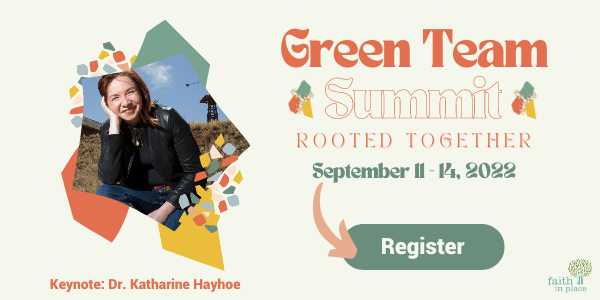(On Friday afternoon, the House of Representatives approved the Inflation Reduction Act–which contains historic investments to mitigate climate change–by a vote of 220-207. The vote follows a similar approval in the Senate last weekend. A White House spokesperson said President Joe Biden is expected to sign the measure next week. Here is our take on this legislation).
Interfaith Power and Light of New Mexico and El Paso region has worked hard to get climate legislation at the federal level. While we are pleased that there will be movement toward reduction of carbon emissions and toward new energy, jobs, and even help with health care for our region through the Inflation Reduction Act (IRA), we are very disheartened by the compromises for oil, gas and nuclear that so adversely affect our frontline neighbors in our region.
We are committed to continue to work with our frontline neighbors to address concerns of pollution, health, and impairment of water, land and air in communities affected by oil and gas extraction that seems geared for profit for a few.
In addition, we are grateful that the United States will have something to take to the United Nations International table as we work as a global community. The IRA will help us toward goals to mitigate the most harmful effects of runaway global warming for those most vulnerable and suffering around the world from floods, droughts, unprecedented storms, sea level and growing food insecurity and famine. We are committed to continue to work with our frontline neighbors to address concerns of pollution, health, and impairment of water, land and air in communities affected by oil and gas extraction that seems geared for profit for a few.
‘
As the book of Deuteronomy states, “I have set before you today death and life, choose life that you and future generations might live.” As an Interfaith community we work to address climate change in so many ways. We choose life, though sometimes the choices require very difficult compromises that we carry as we continue to work for greater equity and loving actions for life.
Sister Joan Brown, osf
Director, Interfaith Power and Light, New Mexico and El Paso region

